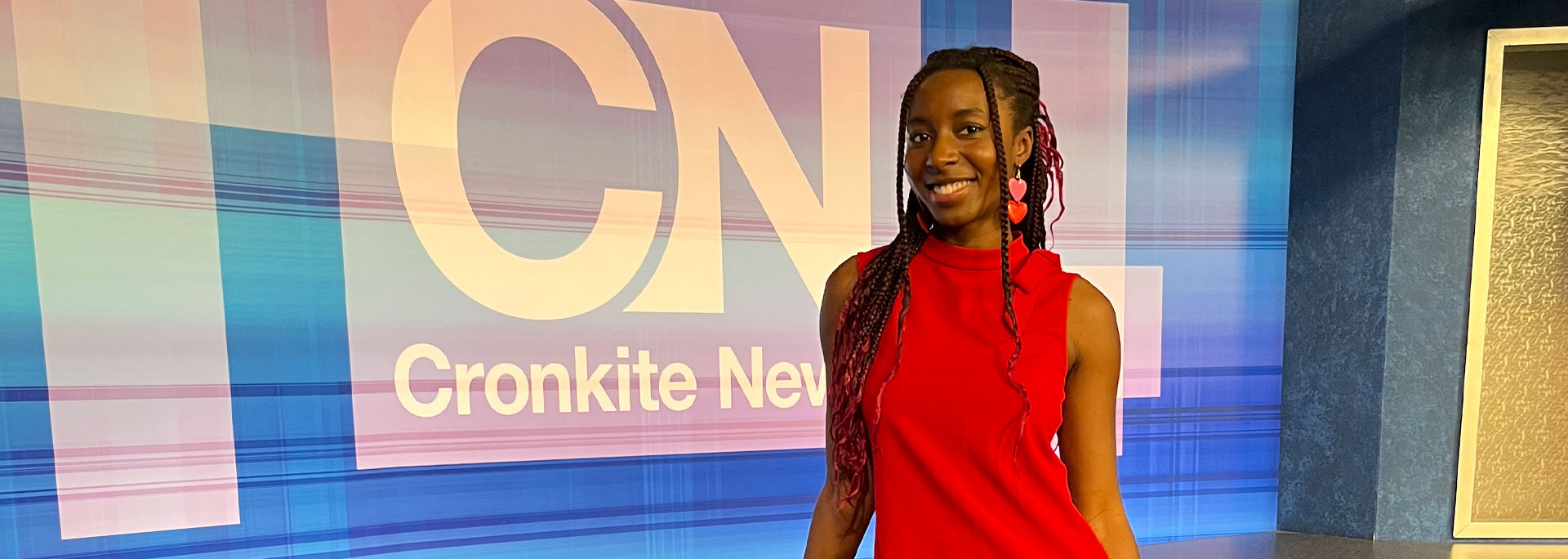About four years ago, Lydia Curry was inspired to pursue a marketing and communications career after spending only two weeks at the Cronkite School.
Curry was not a college student, but a high schooler attending a residential summer camp designed to immerse high schoolers in content creation skills, media careers and college.
At the Walter Cronkite School of Journalism and Mass Communication at Arizona State University, Camp Cronkite — a donor-funded program that receives generous support from various community partners — invites high school students from across the country to live in the Gordon Commons residence hall and explore digital journalism, broadcast journalism and sports journalism.
Students gain skills in reporting and writing, photography, multimedia journalism, audio, television, video editing, immersive journalism and other forms of storytelling. Attendees create portfolio-worthy content on which to build during their college careers while getting a feel for college life.
“This year, Camp Cronkite had nearly 400 high school applicants from all over the world! From novice to expert levels in media and content creation skills, the students were also from diverse geographical, socioeconomic and ethnic backgrounds,” said Yazmin Reyes, assistant director for recruitment at the Cronkite School. “Many of the 63 campers this year belonged to underrepresented groups in higher education and newsrooms, so it was important for us to create a space for them to explore journalism and communication as a way to help diversify the future of media..”
This year’s camp took place from June 11-17 at the Cronkite School. The campers toured the Arizona PBS, ABC15 and 12News television studios, and attended the Arizona Diamondbacks and Phoenix Mercury games.
Curry, who’s now a Cronkite undergraduate student entering her final year, was so impacted by her time at the camp that she served as a camp guide this year, hoping to provide the same inspiration to campers who are curious about media careers. This was her second year working as a camp guide.
“I think I had a big impact on the campers, and when the end of camp rolled around, they were so sad to leave,” Curry said. “[I thought], ‘Maybe I should come back and keep doing this until I graduate.'”
Curry first developed an interest in communications and public relations during high school, where she took journalism classes and made morning announcements on her school’s student news broadcast.
Those experiences prompted her to apply for Cronkite’s camp, after receiving an email newsletter outlining the Cronkite School’s summer programs.
“Then I came here, and I was able to take my journalism knowledge from those classes and apply it to something real, and actually go and do a story and create a broadcast package,” she said. “I was so proud of that.”
Curry met a camp guide who was a Cronkite student already establishing herself as an accomplished sports photographer. She also noticed the opportunities Cronkite students were receiving as they pursued their careers.
Not only did the camp experience motivate Curry to further pursue a communications career, but it also influenced her decision to attend the Cronkite School.
“Just getting to use the facilities and just knowing we have good equipment and class sizes are small, which is what I wanted. Also, the ASU Downtown Campus has that small campus feel, but obviously big school resources,” she said.
Curry has focused on multimedia content creation since she’s been at Cronkite, including photography, video and audio. She was recently hired as marketing coordinator at the Arizona Office of Tourism. She knows the impact that Camp Cronkite and its staff can have on its attendees and hopes more students will be encouraged to follow her path.
“I definitely think this camp is a good idea to come and get thrown right into journalism,” she said. “You get to start taking the knowledge that you learn in those lectures and start applying it to real life, which I think is the most important part of a journalism education.”
